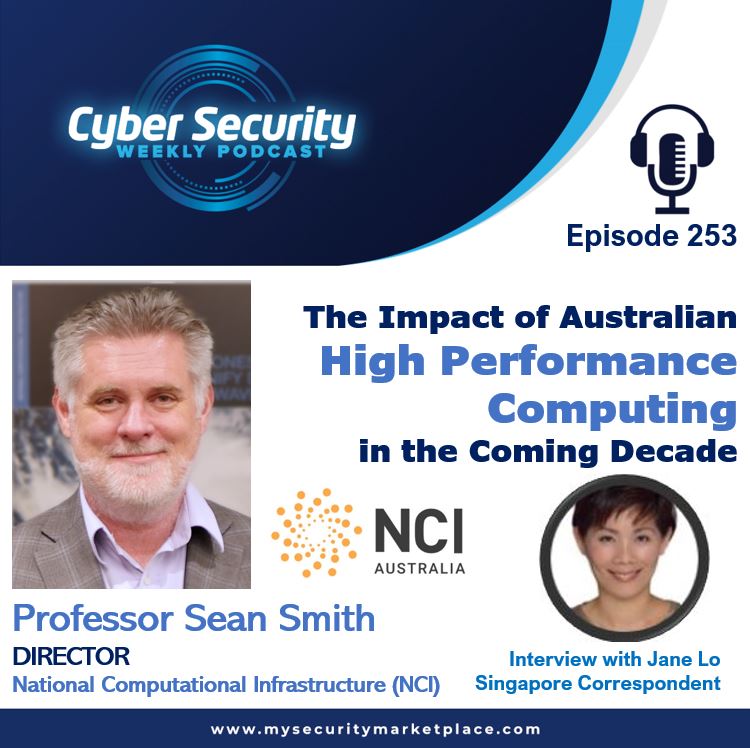Jane Lo, Singapore Correspondent speaks with Professor Sean Smith, Director at National Computational Infrastructure (NCI) following SuperComputing Asia 2021.
Professor Sean Smith commenced as Director of the NCI in January 2018 and is conjointly Professor of computational nanomaterials science and technology at the Australian National University. He has extensive theoretical and computational research experience in chemistry, nanomaterials and nano-bio science and technology. He returned to Australia in 2014 at UNSW Sydney, founding and directing the Integrated Materials Design Centre to drive an integrated program of materials design, discovery and characterization. Prior to this, he directed the US Department of Energy funded Center for Nanophase Materials Sciences (CNMS) at Oak Ridge National Laboratory, one of five major DOE nanoscience research and user facilities in the US, through its 2011-2013 triennial phase.
During his earlier career, he joined The University of Queensland as junior faculty in 1993 after post-doctoral research at UC Berkeley (1991-1993) and Universität Göttingen (Humboldt Fellow 1989-1991); became Professor and Director of the Centre for Computational Molecular Science 2002-2011; and built up the computational nanobio science and technology laboratory the Australian Institute for Bioengineering and Nanotechnology (AIBN) at UQ 2006-2011. He worked with colleagues in the ARC (Australian Research Council) Center of Excellence for Functional Nanomaterials 2002-2011 as Program Leader (Computational Nanoscience) and Deputy Director (Internationalisation).
Professor Smith has published over 330 refereed journal papers with more than 22,000 citations. In 1998 he was elected Fellow of the Royal Australian Chemical Institute. In 2006 he was recipient of a Bessel Research Award of the Alexander von Humboldt Foundation in Germany. In 2012 he was elected Fellow of the American Association for the Advancement of Science (AAAS) and in 2015 he was elected Fellow of the Institution of Chemical Engineers (IChemE). He received his PhD in theoretical chemistry from the University of Canterbury, New Zealand, in 1989.
In this podcast, Professor Smith discusses the evolution of Australian high performance computing (HPC) and its pivotal role in advancing science that delivers societal and economic value. He introduces NCI’s supercomputer Gadi, and its architecture driving its processing capabilities, currently ranked as the most powerful in the southern hemisphere.
Using the examples of the cyclone and bushfire that he presented at the SuperComputing Asia 2021 conference, Professor Smith explains how Gadi’s exascale compute tackles the challenges of building models at levels of complexity that were previously not possible. He also highlights how big data and analytics is relied upon by big agency mission science (such as geoscience, earth and climate science), and decision makers in private sectors for more accurate and timely information.
These aspects, he notes, are increasingly critical to enable, for examples, more effective disaster event responses and further practical applications of medical research.
Recorded: 5th March 2021 SGT 7.30am/ Canberra 10.30am.
MySecurity Media were proud media partners to SuperComputing Asia 2021.



